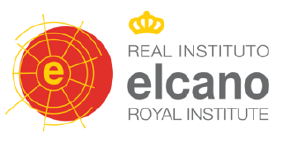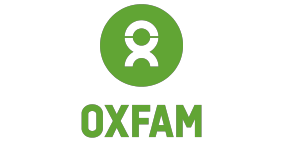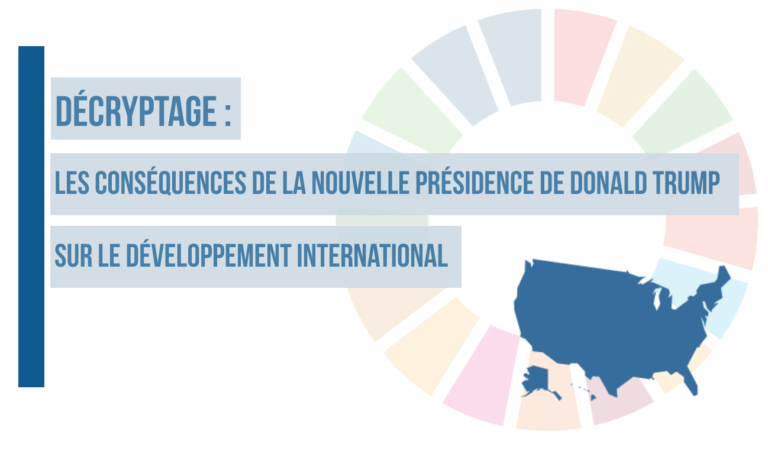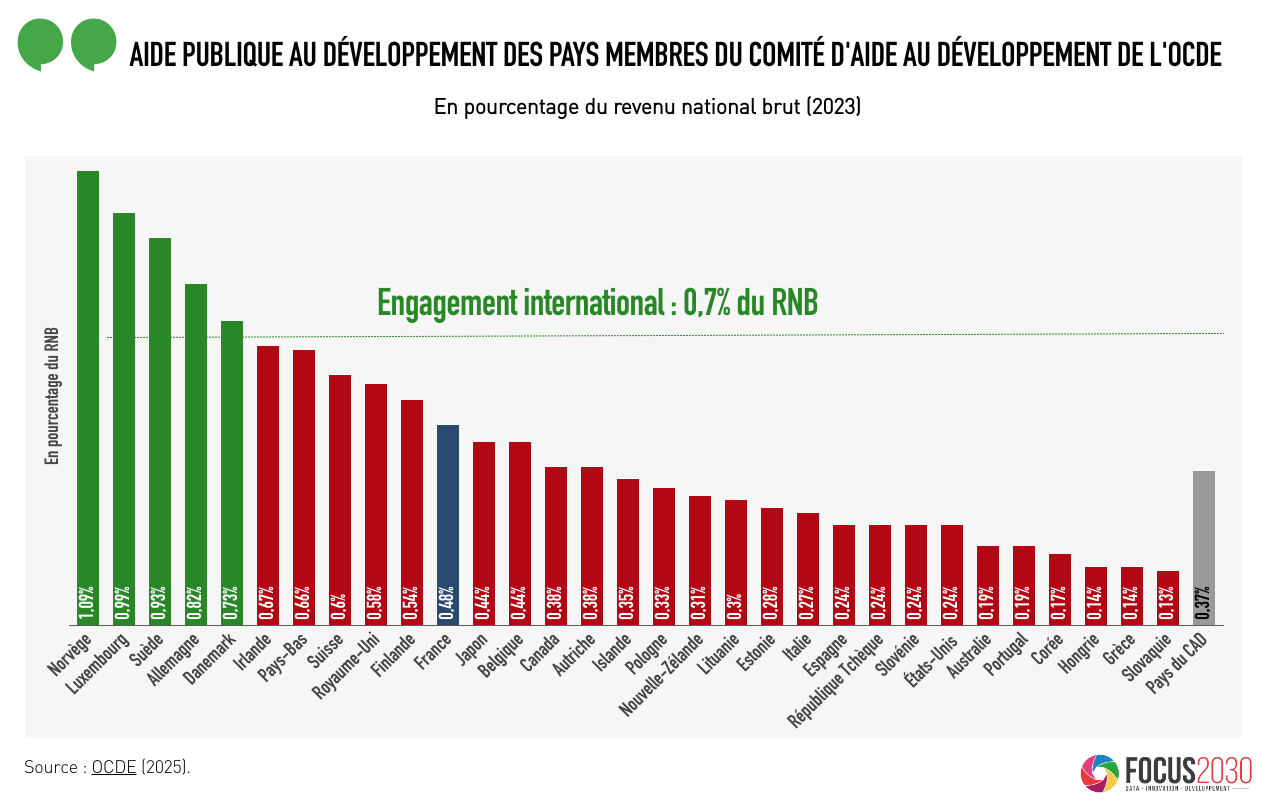For a new ambition on development aid in Spain
Publié le 06/06/2019, modifié le 21/11/2019.
Focus 2030 is supporting three key partners for a project aiming to inspire a new ambition in Spain on development aid and international solidarity. Focus 2030 launched an ambitious grant programme at the start of 2018, supporting three coordinated projects run by the Barcelona Institute for Global Health (a think tank working on global health), Oxfam Intermón (a development NGO), and the Real Instituto Elcano (a policy think tank).
Context: a dangerous fall in Spanish official development
assistance (ODA)
After an impressive engagement on international development at the turn of the 21st century (Spanish ODA rose from 2 billion dollars in 2000 to 5.5 billion dollars in 2008, with a real investment on global health) the financial crisis of 2008 led to drastic cuts, especially in Spain’s voluntary contributions to multilateral development organisations. From 2015, there was a slow reversal of this fall, but this was mostly due to a large volume of debt relief in 2016. And in 2017, despite a better economic outlook and parliamentary consensus to increase ODA, Spanish aid was still well below its level of 2008 at only 2.6 billion dollars or 0.19%/GNI.
Spanish ODA is still lagging behind the average for comparable donors, and Spain has still not reengaged with multilateral financial instruments such as the Global Fund to Fight Aids TB and Malaria. However, the enthuiastic adoption of the 2030 Agenda and a political willingness for a commitment of 0.4%/GNI, as well as latest political developments within the EU, provide a promising setting for Spain to come back to its historic role as a key global donor.
Aims of the Focus 2030 grant
The overarching programme, coordinated with assistance from our consultant in Spain, Ernest Aibar, provided a framework to coordinate our three partners’ research, awareness-raising and communications actions, set out to achieve three key objectives from 2018 onwards:
- Create the necessary conditions for Spain to meet its international ODA commitments Oxfam Intermón will work with key stakeholders in the government, parliament, civil society and the public to provide information and the case for re-engagement. A priority will be to build a likeminded coalition of civil society across traditional sectors to build a debate around the ambition necessary for development aid to achieve the Sustainable Development Goals.
- Strengthen Spanish engagement with the principle health multilateral funds. ISGlobal will work principally on highlighting the importance and benefits for Spain to re-engage on a long-term basis with the major multilateral health funds (such as the Global Fund or Gavi), and resume a leadership role in public policy on global health.
- Develop and build new narratives on the need for ambitious public policies on international development. Elcano will undertake an academic study to examine and present the links between Spanish development policy and Spanish influence globally. Elcano will carry out interviews and seminars to lead a debate between academics, government officials, politicians and influential thinkers in order to build these new narratives on the added-value and impact of Spanish aid.
Together the three projects – and these three objectives – will promote and convince about the need and benefit for a more ambitious development policy for Spain and a return to the table as a strong global donor.
Highlights from 2018
During the first year of the grant, our partners have carried out some high-level and high-impact communications, research and awareness-raising actions, including:
- a series of newsletters and infographics on global health challenges by ISGlobal, to provide information for parliamentarians.
- regular meetings with mainstream political parties to inform them about the importance and benefits of international development for Spain, organised by Oxfam Intermón, with a focus on the SDGs.
- working group sessions on the 2030 Agenda, organised by Elcano, bringing together government officials, political representatives and experts to debate key development issues and new narratives.
- publication of policy notes on new narratives for development by Elcano.
- a field trip organized by ISGlobal to Mozambique for parliamentarians, including the President of the lower house Ana Pastor, to visit the International Health Centre in Manhiça and better understand the impact of multilateral health ODA.
- a conference on the SDGs in parliament organised by Oxfam Intermón in partnership with UNICEF and WWF. 240 people attended including representatives of 44 other civil society organisations.
- publication of the influential Realidad de la Ayuda 2018 report by Oxfam Intermón, analysing latest trends in Spanish aid and offering predictions for future budgets.
- strategic support from ISGlobal for a high-level delegation visit to Spain by the Global Funds to Fight Aids, TB and Malaria, to meet government officials, parliamentarians and civil society organisations.
- an “Aid Power” seminar in Madrid, organised by Elcano, to debate different aid policies and their reach and influence, attended by government officials, civil society and academics.
Results for the first year
The coordinated actions of our three partners has led to the establishment of an influential and convinced network of individual and organisations, willing to lend their voice and weight to call for Spain to return as an international development donor, including specifically on global health.
In 2018, ISGlobal, Oxfam and Elcano have carried out more than 500 interviews or meetings with government officials, parliamentarians from all the major parties, and representatives of Spanish civil society. In the first twelve months of the grant alone, they have held more than fifty different meetings with officials from Moncloa (government executive) and with the Spanish Ministry for Foreign Affairs, the EU and International Development (MAEUEC).
And the results of this engagement are there. At the start of 2018, the MAEUEC approved a new Master Plan for Spanish Development 2018-2021. This document was altered to include specific requests and recommendations from our three partners, such as reinforcing gender in development, establishing a multilateral action strategy, or better prioritisation of international health agencies who provide universal access to illnesses linked to poverty.
Our partners’ outreach work with parliamentarians has also borne fruit. In March 2018, Congress (lower house of parliament) reaffirmed the need for Spanish aid to return to its previous levels of ambition and reach 0.4%/GNI by 2020. And throughout the year, different spokespeople of the various parliamentary commissions also called for Spain to re-engage once more with the Global Fund to Fight Aids, TB and Malaria. These calls were heard, as the government proposed an 8% increase in Spanish aid on 2017 levels promised in the 2018 state budget.
After the sudden change in government in June 2018, our three partners intensified their outreach to new officials. Consequently, one of the new Spanish government’s first decisions was to create a High Commissioner for the 2030 Agenda in July 2018, headed by Cristina Gallach, to coordinate all of the government’s policy work and implementation around the SDG framework.
Also in July, Oxfam and ISGlobal were invited to accompany the Spanish delegation to the High Level Forum on SDGs in New York. Following briefings with our partners, the new Foreign Affairs Minister Josep Borrell made a public statement re-confirming the government’s recommitment to increase Spanish aid to 0.4%/GNI.
In September 2018, Prime Minister Pedro Sánchez returned to New York for the UN General Assembly, where he gave a speech confirming the Spanish government’s commitment to the 2030 Agenda and particularly to gender equality.
Following this, Elcano invited a group of high-level officials from the new government to their headquarters to join academic experts and civil society for a discussion on aid and political influence. Just a few weeks later, the Spanish government approved a state budget which included a 13% increase in Spanish aid compared to the 2018 budget.
Given these excellent and promising results for the first year, Focus 2030 decided to renew the grant for 2019. Priorities in 2019 are preparations for for Spanish general elections in order to ensure continued positive engagement on development, and the October 2019 replenishment conference for the Global Fund to Fight Aids, TB and Malaria.














